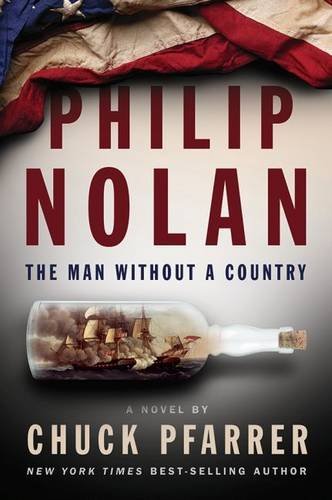Philip Nolan
The novel begins in 1807. Philip Nolan, a young lieutenant in the western territories, is caught up in Vice President Aaron Burr’s schemes to dislodge the vast lands of the recent Louisiana Purchase from the Union. When the scheme falls apart, thanks to a speedy triple-cross by a co-conspirator, General James Wilkinson, Nolan finds himself under arrest for carrying the VP’s messages. Jefferson’s lawyers can’t hang the crime of treason on the nimble Burr, so they go looking for a scapegoat and quickly find one in Philip Nolan. A properly stiff-necked 18th-century officer, Nolan refuses to compromise his honor. Enraged by the false charges and the underhand methods used to frame him, wounded and in pain, he vehemently declares his hatred for a country which would use an honest man so. His vindictive judges sentence him to be passed from ship to ship at the mercy of whatever captain until he dies, never to see America or have any contact with friends again.
This is, of course, the plot of “The Man Without a Country,” a story written in 1863 by Edward Everett Hale. At first, I was dubious about a fiction based upon a fiction, but it didn’t take me long to be completely drawn into this timely reworking of an old story. I wrote an admiring review for Mr. Pfarrer’s powerful Killing Che some years back. Once more, the author’s handling of the period and of his characters is impressive. His immersion in 19th-century manners and mores, his understanding of what makes a great Age of Sail narrative, and his passionate storytelling and heart-pounding descriptions of warfare at sea made for a terrific read. Highly recommended!










